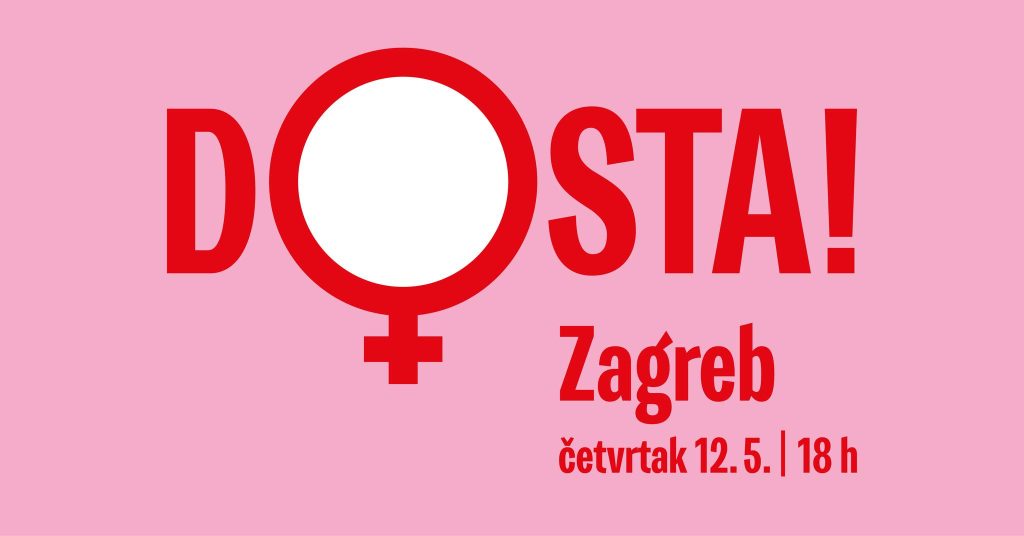The case of Mirela Čavajda, a 39-year-old pregnant woman whose request to have an abortion in the 26th week of pregnancy after the fetus was diagnosed with a malignant brain tumor was rejected by three hospitals in Zagreb, has caused great outrage in the country, with demands for the reproductive rights and health rights of Croatian women to be respected.
The medical procedure will finally be possible for Mirela in Slovenia, whose costs will be covered thanks to donations from 1,472 citizens and 16 legal entities, who donated 220,687 kuna and 37 lipa through the SOLIDARNA foundation, and with the cooperation of CESI, RODA, and PaRiter, reports Index.hr. The cost of the medical procedure in Slovenia is 5,000 euros.
“1472 citizens and 16 legal entities expressed their support for Mirela. Thank you all for the solidarity shown to our fellow citizen in these difficult times! Thank you for proving that when the state turns its back on one of us, we can count on each other! The necessary funds will be directed immediately to Mirela, and the surplus will be used to help women cover the costs of all forms of health care. Because access to health care is not and should not be a worldview issue,” the RODA association wrote.
Members of the RODA Association invited citizens to join them at a rally in support of Mirela on Thursday, May 12 at 6 pm at Ban Jelačić Square in Zagreb. More information can be found at the official Facebook event.
“Join us and loudly say ENOUGH of political games at the expense of women’s health,” the Roda association wrote.
The decision that Mirela Čavajda was not entitled to the termination of her pregnancy, even if the law allows it when there are medical indications that can be expected to “give birth to a child with severe congenital physical or mental disabilities” at the level I, was made mainly by female doctors, and that without a word of explanation for Mirela, reports Jutarnji List.
In the same way, in the same tone in which Mirela Čavajda withheld information about her rights and possibilities when she faced a difficult diagnosis in high pregnancy and sent her to Slovenia, three Zagreb hospitals rejected her request to terminate the pregnancy: without any arguments. It is also interesting that in different hospitals her request was decided by differently appointed bodies under different bureaucratic names, although the law states that the request is decided by a commission.
The first-degree commission for the free decision-making on the birth of children at the Merkur Clinical Hospital, where the pregnant woman, according to her own words, had a feeling that she was being persuaded to give birth when they denied her request.
The three-member Commission consisting of Željko Duić, Dorothea Pavan Jukić, and Biserka Matok Glavaš, rejected the pregnant woman’s request as follows:
”The subject request for termination of pregnancy is not approved and the pregnant woman is referred to the second-degree Commission of KBC Zagreb, which decides on the complaint against the first-degree Commission”.
In KBC Sestre milosrdnice, Vesna Gail, Ivan Brlečić, and Blaženka Sumpor were even more stingy: “Based on the insight into the conducted diagnostic tests, it is not possible to determine the definitive diagnosis with certainty and the request is rejected.”
The Clinic for Women’s Diseases and Obstetrics in Petrova, consisting of Vesna Elveđa Gašparović, Marina Ivanišević, and Đurđica Zlodi, is somewhat more eloquent.
They determine that “by reviewing the submitted documentation, all previous medical procedures: perinatal ultrasound and magnetic resonance imaging of the fetal head indicate the development of a tumor in the brain, verification of which requires postnatal medical diagnosis and pathohistological diagnosis. The first-degree commission concluded that it could not approve a premature birth.”
Unlike the first two mentioned hospitals, the clinic in Petrova has not forgotten its legal obligation to teach the patient about the possible legal recourse and informed her that she can file a complaint to the second-degree Commission within three days.
For more, check out our lifestyle section.










